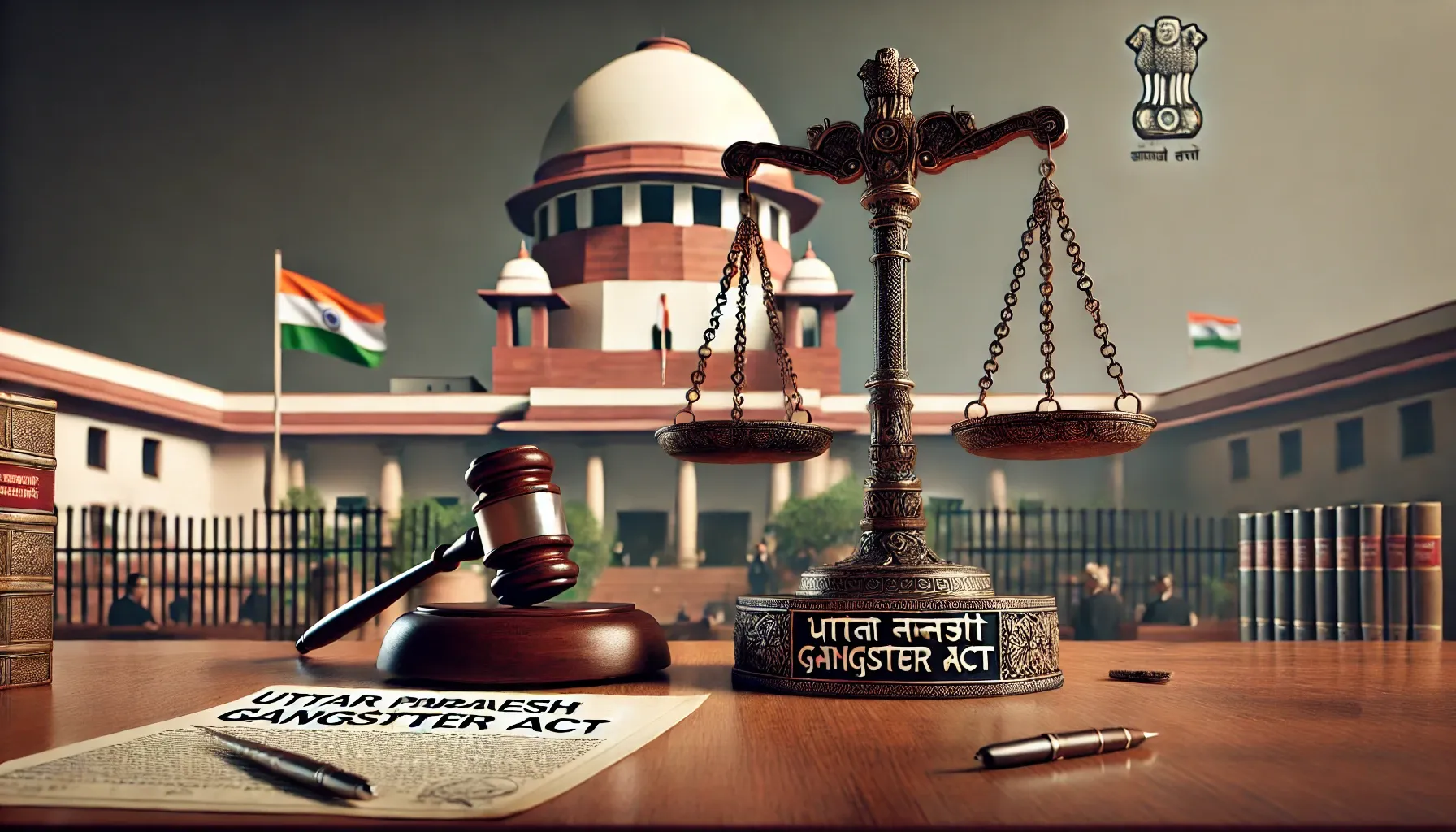The Supreme Court seeks a response from the Uttar Pradesh government regarding a plea challenging the constitutional validity of the Uttar Pradesh Gangsters and Anti-Social Activities (Prevention) Act of 1986, highlighting concerns over fundamental rights and potential misuse.

In a significant development, the Supreme Court of India has sought a response from the Uttar Pradesh government on a plea challenging the constitutional validity of the Uttar Pradesh Gangsters and Anti-Social Activities (Prevention) Act of 1986. The Bench, comprising Justices BR Gavai and KV Viswanathan, issued a notice to the State after hearing arguments presented by Senior Counsel R Basant on behalf of the petitioners. The plea raises critical questions about the Act's provisions, which allegedly infringe upon fundamental rights and enable potential misuse by law enforcement agencies.
Petitioners' Arguments
- Excessive Powers to Police: Senior Counsel R Basant contended that the Act permits the police to act as the complainant, prosecutor, and adjudicator, effectively concentrating excessive power in their hands. This, he argued, undermines the fairness of the judicial process.
- Attachment of Property: The Act allows for the attachment of the entire property of the accused, which Basant suggested is a draconian measure that can be misused, leading to unjust deprivation of property without adequate legal safeguards.
- Violation of Fundamental Rights: The plea asserts that certain sections of the Act and its Rules violate fundamental rights guaranteed by the Constitution of India, particularly concerning the right to equality and protection against double jeopardy.
Previous and Pending Petitions
- The Supreme Court is already seized of a similar public interest litigation (PIL) filed in 2022 by advocate Ansar Ahmad Chaudhary. This PIL challenges Sections 3, 12, and 14 of the Act, along with Rules 16(3), 22, 35, 37(3), and 40 of the 2021 Rules, which pertain to registration of cases, attachment of properties, investigation, and trial procedures.
- Rule 22 Concern: Notably, Rule 22 stipulates that a single act or omission is sufficient to register a First Information Report (FIR) under the Act, rendering the criminal history of the accused irrelevant. The petitioners argue that this provision is violative of fundamental rights, as it allows for severe legal action based on a solitary incident.
Issues of Double Jeopardy
- The plea highlights that re-registering an FIR under the Act against a person who has already been charged for the same crime amounts to double jeopardy, violating Article 20(2) of the Constitution of India.
- This constitutional provision protects individuals from being prosecuted or punished more than once for the same offense.
Court's Consideration
- Notice Issued: The Bench of Justices BR Gavai and KV Viswanathan has issued a notice to the Uttar Pradesh government, seeking its response to the allegations raised in the plea.
- Legal Representation: Alongside Senior Counsel R Basant, advocates Manish Kumar Gupta, Mohd Faris, Aman Kumar, Raunak Arora, Akash Rajeev, and Indra Lal appeared for the petitioner, underscoring the legal fraternity's collective concern over the Act's provisions.
- Pending Detailed Hearing: The court acknowledged that the earlier PIL is pending and yet to be heard in detail, indicating that the issues raised require comprehensive judicial scrutiny.
Potential Implications
- Review of the Act: If the Supreme Court finds merit in the plea, it could lead to a significant review or even the striking down of certain provisions of the Uttar Pradesh Gangsters and Anti-Social Activities (Prevention) Act.
- Protection of Fundamental Rights: The case underscores the judiciary's role in safeguarding constitutional rights against potential overreach by the legislature or executive authorities.
- Law Enforcement Practices: A judgment in favor of the petitioners may necessitate changes in how the police and prosecution handle cases under this Act, promoting more balanced and fair procedures.
Source: Bar and Bench





